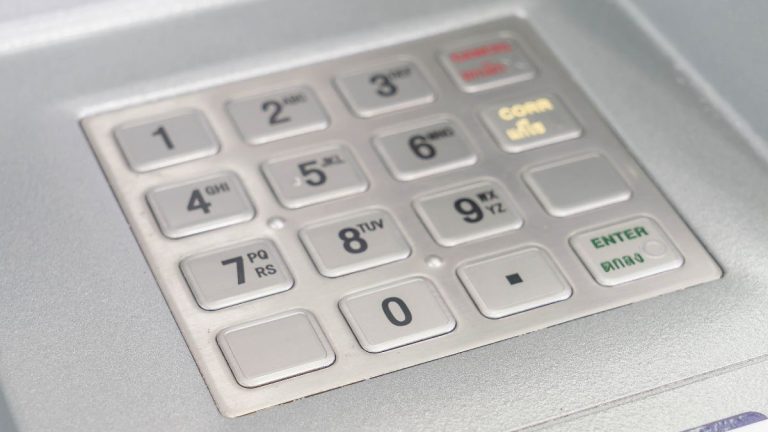Most South Africans use four-digit PIN codes to secure their bank cards and mobile wallets. However, studies reveal that millions still rely on predictable and easily guessed numbers. The most common PIN codes are often simple sequences, repeats, or even birth years.
Thank you for reading this post, don't forget to subscribe!Cybercriminals exploit this behaviour. A single guess from the top 20 most common codes can unlock one in ten accounts.
If your PIN appears in the Top 50 list below, change it immediately.
The Top 50 Most Common PIN Codes
These are the numbers that cybercriminals try first. If your PIN is here, it’s unsafe:
- 1234
- 1111
- 0000
- 1342
- 1212
- 2222
- 4444
- 1122
- 1986
- 2020
- 7777
- 5555
- 1989
- 9999
- 6969
- 2004
- 1010
- 4321
- 6666
- 1984
- 1987
- 1985
- 8888
- 2000
- 1980
Need to replace your Cell C SIM? Read our guide on How to Do a SIM Swap on Cell C: A Step-by-Step Guide.
- 1988
- 1982
- 2580
- 1313
- 1990
- 1991
- 1983
- 1978
- 1979
- 1995
- 1994
- 1977
- 1981
- 3333
- 1992
- 1975
- 2005
- 1993
- 1976
- 1996
- 2002
- 1973
- 2468
- 1998
- 1974
Why Are These PINs So Common?
Most people choose codes they can remember easily. This includes:
- Straight sequences like 1234 or 4321.
- Repeated numbers such as 1111 or 7777.
- Dates of birth, especially from the 1970s to 1990s.
- Patterns on the keypad like 2580 or 2468.
Unfortunately, these habits make your security predictable.
Switching numbers or replacing a lost card? Learn How to Do a SIM Swap on Vodacom: A Step-by-Step Guide.
Expert Warnings on Weak PINs
Security experts have long warned against reusing predictable numbers. A study found that criminals guessing PINs using birthdays could unlock accounts “once for every 11–18 stolen wallets.” University of Cambridge
Their advice was clear: “The lesson for cardholders is to never use one’s date of birth as a PIN.”
Government and Industry Standards
The U.S. National Institute of Standards and Technology (NIST) recommends blocking weak and commonly used PINs. Their guidelines state:
“Verifiers SHALL compare the prospective secrets against a list… commonly-used, expected, or compromised.” NIST
This means banks and mobile operators should prevent you from selecting a PIN like 1234 or 0000.
South African Banking Advice
Locally, the South African Banking Risk Information Centre advises:
“Choose an unusual PIN… hard to guess. Do not use your date of birth.” SABRIC
They also urge South Africans to cover the keypad at ATMs and avoid writing down their PINs.
The Risks of Sticking With a Common PIN
If your PIN appears in the top 50, you are more vulnerable to:
- ATM fraud: Criminals use cameras or shoulder surfing to test common PINs.
- Mobile wallet hacking: Weak PINs make it easy for thieves to bypass digital security.
- SIM swap fraud: Criminals who get access to your banking PIN can drain your account quickly.
How to Create a Safer PIN
Here are practical tips to improve your PIN security:
- Use a random combination of digits.
- Avoid patterns, repeats, or birthdays.
- Never share your PIN with anyone, even friends or family.
- Change your PIN regularly, especially after a data breach.
For maximum protection, use different PINs for different cards and accounts.
Technology Can Help Block Weak Choices
Banks are beginning to use software that rejects risky PINs. Some South African banks already prevent customers from using 1234 or 0000. These blacklists reduce fraud success rates and protect consumers who might otherwise choose weak numbers.
What To Do If Your PIN Is Compromised
If you think your PIN is exposed:
- Change it immediately.
- Contact your bank’s fraud department.
- Check your statements for unusual activity.
- Enable SMS alerts for transactions.
Prompt action reduces financial losses.
Lost your SIM or upgrading your phone? Here’s How to Do a SIM Swap on MTN: A Step-by-Step Guide
The Bottom Line
The Top 50 most common PIN codes are highly unsafe. If yours is on the list, you are at serious risk. Security experts, universities, and banking authorities all agree: avoid predictable numbers, never use birth years, and opt for unique combinations.
Strong PIN hygiene is one of the easiest ways to safeguard your hard-earned money.




